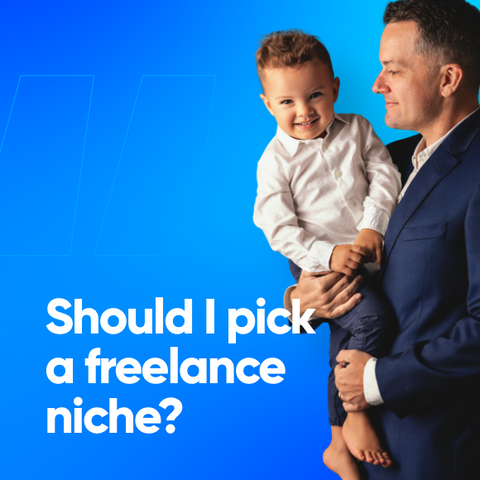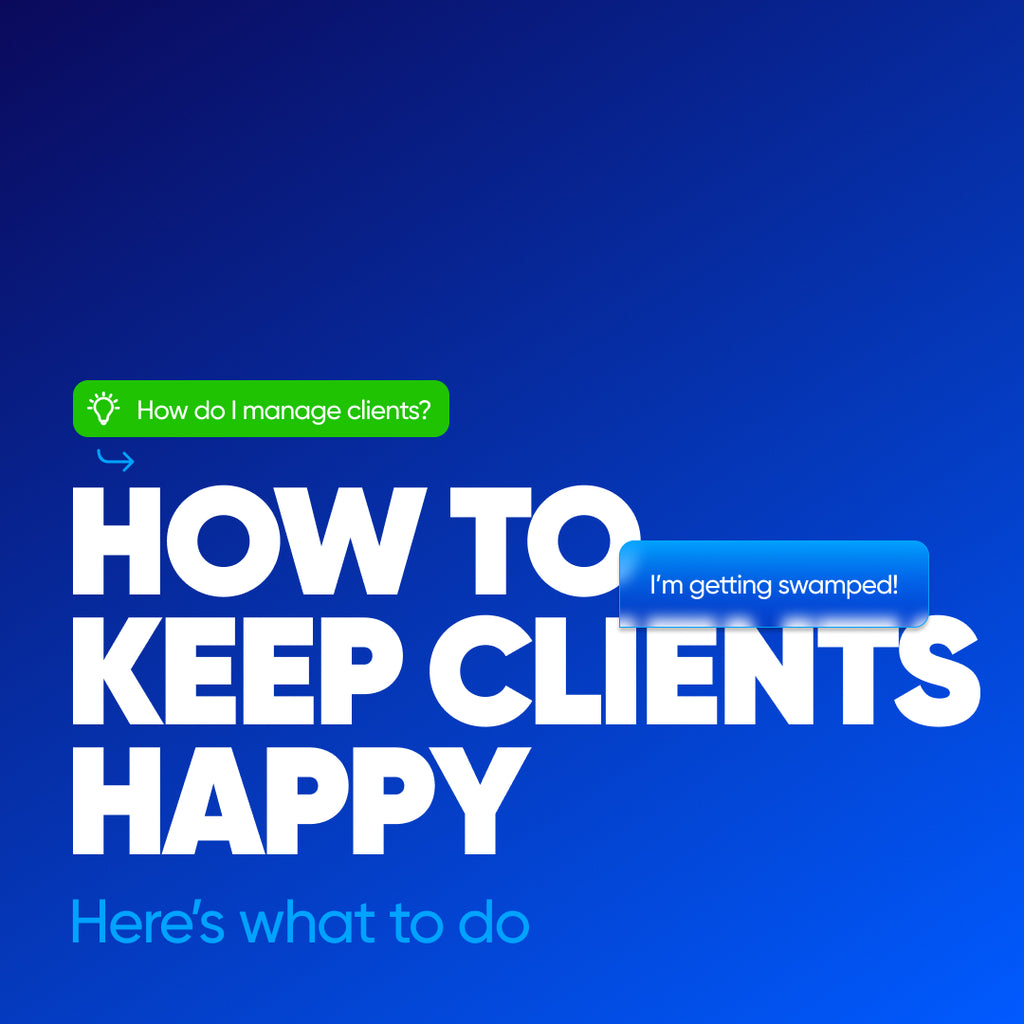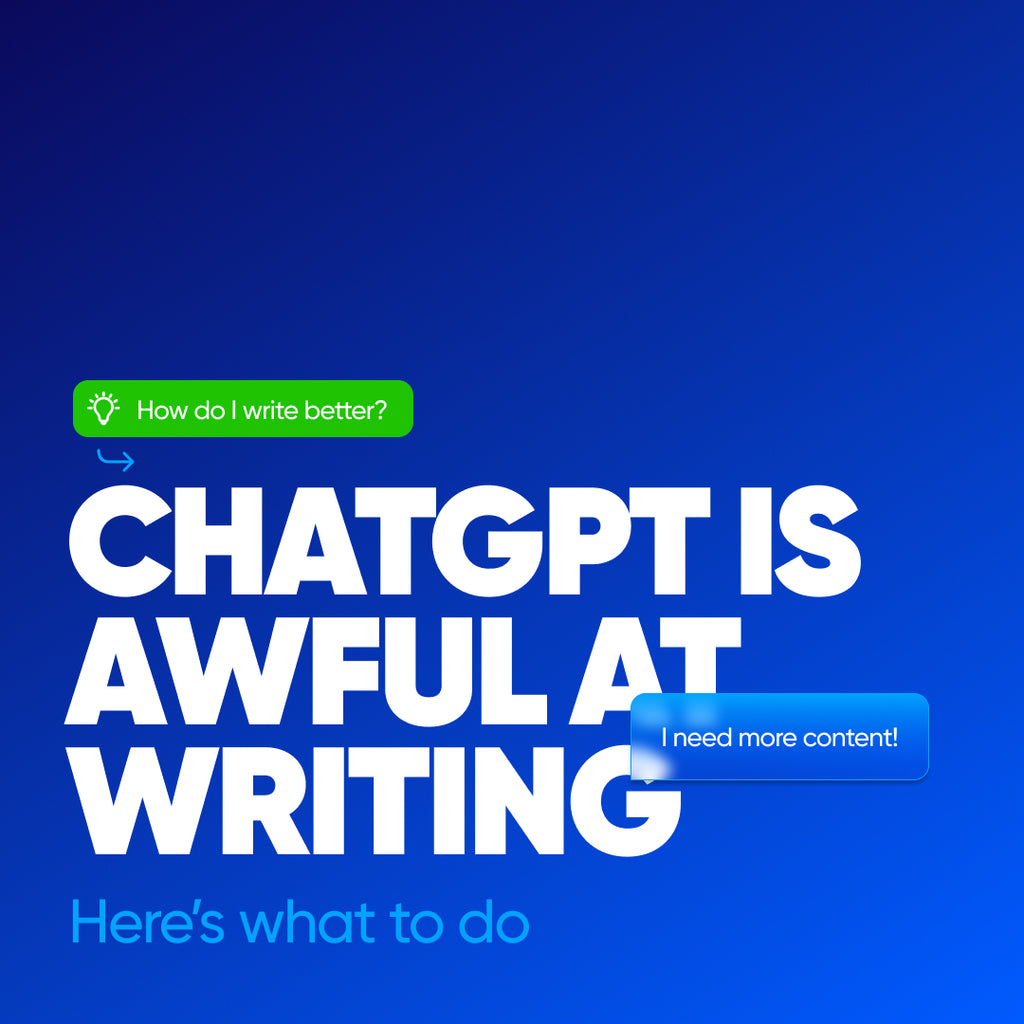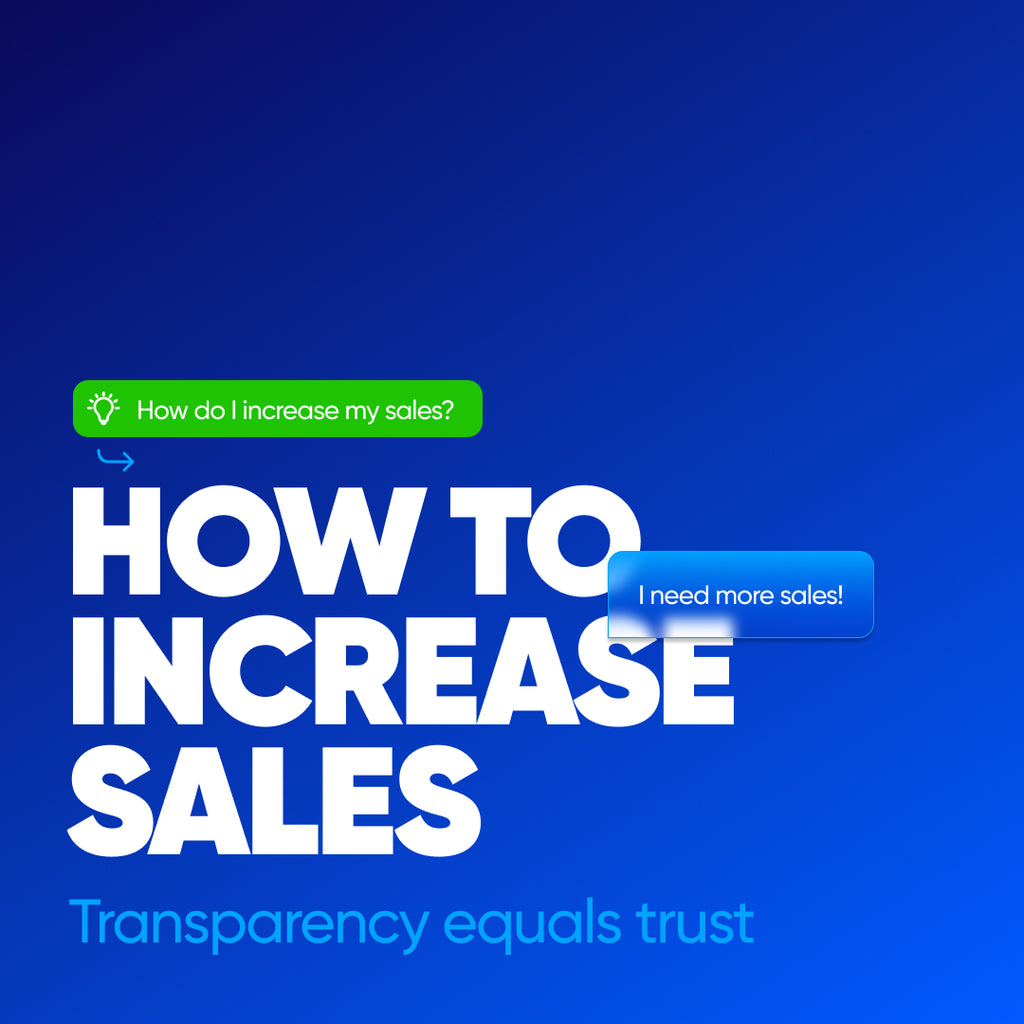Hey everyone, it's Scott, and today I'm explaining why I DON'T think you should choose a freelance niche.
You may be thinking, "well, Scott, how do I compete if I can't be specific with my services?"
Remember that by "niche" I'm not referring to a freelance service category such as Graphic Designer, Website Developer, Marketer, or Copywriter.
When I talk about "niches" I am referring to a Copywriter who only writes about Web 3.0, fintech, or cats.
Here are five reasons I don't recommend choosing a freelance niche:
- You will limit the amount of work you can get
- You will miss out on work you might like
- You will eventually get bored of the niche
- Your portfolio won't reflect a wide range of skills
- Your niche may disappear
1. Here is how you will limit the amount of work you can get:
As a freelancer for over twenty years, I've done a bit of everything in virtually every niche. By becoming a generalist freelancer, you can accept almost every project.
Remember that as a freelancer, clients will hire you to help them solve problems, which are always more complex than their face value.
A client rarely requests "a 4,000-word blog post about how cows emit methane and contribute to global warming in a specific state." They will ask for "an increase in traffic to their site to build sales."
It then becomes your job to solve the problem of "how?"
Then you can make a specific plan, research, and produce the right content to build that traffic.
Starting with a niche saying, "I write blogs about cows," dramatically limits the amount of work you can accept. Yes, you can write, but the issue becomes that you can't demonstrate your range with 100 articles about cows.
It is much better to write blogs, where there is loads of work to be had than write about a specific topic.
2. You might miss out on niches you don't even know you like:
Great projects are less about the niche and more about the client. Great clients have gotten me interested in Toys and Insurance. By being great to work with, clients can help you build a portfolio of work you enjoy.
Where it all goes wrong is getting a few bad clients in your niche, and now you're asking, "what am I doing wrong?" "how am I bad at this?"
Queue imposter syndrome.
Now the niche you made yourself a specialist in is tainted by a bad client, or 3, and bad clients are everywhere. Every business has clients who makes them wonder, "why do I even bother doing this?"
On the other side of the fence are the great clients you work with on hundreds of projects and help you get interested in topics you didn't even know you liked.
3. You might get bored of the niche you're working in:
As a freelancer, you have to play the long game. I've been at this since before Facebook existed, and I've seen niches come and go. If you choose a place, you'll eventually tire after a week, month, or decade.
I love designing Logos, Websites, and Apps, but I don't love creating Apps day in and day out for years. Mixing up your niches and being more of a generalist will keep your day-to-day work fresh.
Peanut butter and jam sandwiches are delicious, but for every meal, nah.
By generalizing as a designer, developer, or writer, you can hop into each niche within each category and learn new skills. By enabling yourself to learn, you ensure a fantastic future.
New platforms, software, and technologies will appear, evolve, and disappear throughout your career. Some will be appealing; you can spend time learning those, and some won't interest you.
The point is that you keep things interesting by leaving yourself open to learning and evolving your career.
4. Your portfolio won't reflect a wide range of skills:
As I mentioned earlier about freelancing before Facebook existed, had I focused only on print design for consumer packaged goods design as my niche and refused to learn, I would have had a very dull career... and a portfolio packed with decades of designs for boxes.
By niching down, it causes a problem as industries evolve, now you have a portfolio packed with a specific type of work, but maybe UI/UX design might appeal to you now, but clients won't trust you because you only have one kind of work.
When you mix different work styles regarding copywriting, you can expand by doing long-form content, short-form content, slogans, and product descriptions. By saying, "I want to write," instead of "I want to write slogans for toy brands," you open up a world of possibilities.
Remember that at the end of the day, passion for a niche will fade, it can happen fast or take years. There's nothing wrong with having a niche, I just don't recommend ONLY doing work in that one niche.
5. Your niche may disappear.
2022 was all about Web 3.0, 2023 has been all about Artificial Intelligence, and yes, while there was a ton of work in Web 3.0 (and there still is some), had you followed this niche, you would have seen the market collapse.
If your niche disappears and you have a portfolio packed with a topic that no longer exists, it doesn't allow potential clients to choose something that relates to them.
A few Web 3.0 and AI pieces are great ideas, but leave yourself open to everything. Accepting every type of project increases your hireability.
By accepting all freelance projects you can reasonably complete, you ensure a fantastic future by increasing your learning ability.
Remember that no one can do everything, and part of learning is accepting projects you may not be able to complete 100% but can figure out.

Should I pick a freelance niche?
Third, try these:

Tools for Freelancers

Write for SEO






